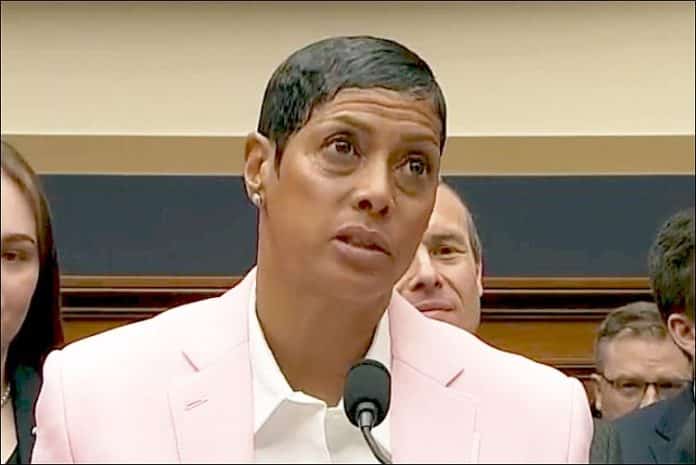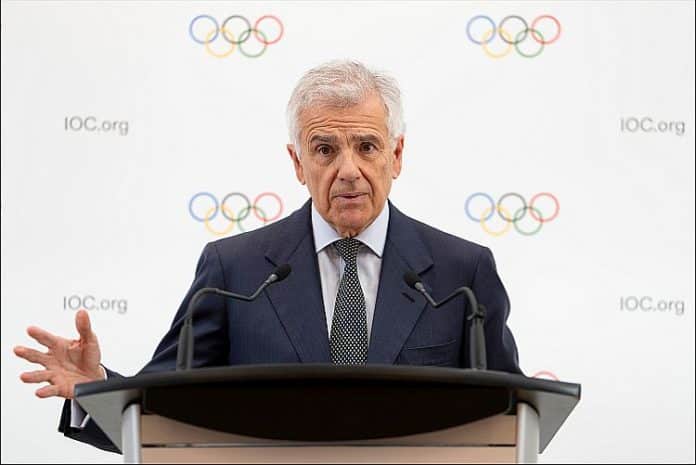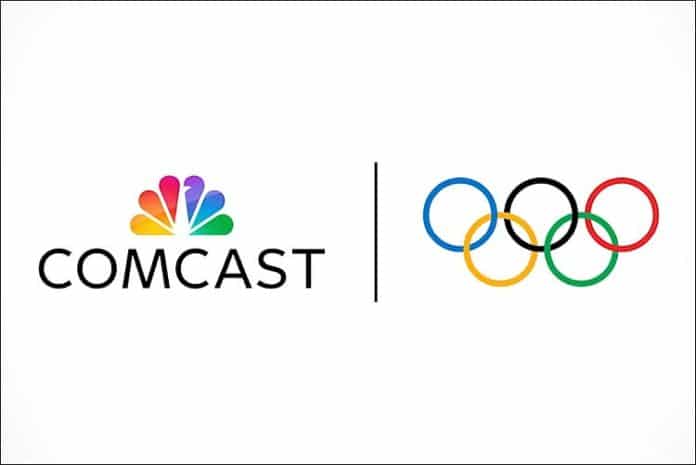★ The Sports Examiner: Chronicling the key competitive, economic and political forces shaping elite sport and the Olympic Movement.★
★ To get the daily Sports Examiner Recap by e-mail: sign up here! ★
≡ COLLEGE COACHES IN CONGRESS ≡
“My view on [name-image-likeness funding] is different from coaches in revenue-generating sports. Unlike those sports, where NIL deals can be lucrative, my athletes earn little to no NIL money. Instead, they rely on scholarships, academic support, and university-provided resources to train and compete at an elite level. …
“My personal fear is that without regulation, all money will be spent on football, and the impact on nonrevenue and Olympic sports will be devastating. I am concerned many universities will eliminate many Olympic sports programs, depriving countless students of the same opportunities that I experienced thanks to college track and field.
“To ensure the future of college athletics remains strong and equitable, I urge Congress to protect universities from excessive litigation which diverts necessary money from our athletes, and to prevent student athletes from being classified as employees, as doing so would force schools to defund and ultimately eliminate non-revenue sports.”
That’s University of Georgia director of track & field Caryl Smith Gilbert, testifying on Tuesday as part of a panel in front of the House Judiciary Subcommittee on the Administrative State, Regulatory Reform, and Antitrust (video), asking Congress for legislative help to preserve many non-revenue sports programs, especially by an anti-trust exemption that would keep college athletes from being classified as employees.
Smith Gilbert explained this in detail:
● “The student-athletes I coach are not just competitors—they are students pursuing an education and an opportunity to build a future beyond sports. For most, scholarships are the only way they can afford a college degree, and obtaining a college degree is truly the most important thing. To be clear, the number of athletes who are able to have a long and lucrative professional career in track and field is infinitesimally small. So, my goal is to ensure that they achieve their potential on the track and in the classroom so that they are prepared for life after college athletics.”
● “Yet, today, track & field and other non-revenue sports are at risk. The current NIL environment – without a clear uniform national standard – threatens scholarships, undermines roster stability, and creates uncertainty for athletes, coaches, and programs. Of equal importance, implementing an employment model would be devastating for non-revenue sports.”
● “Today, our student-athletes receive critical resources – nutritionists, athletic trainers, academic advisors – at no cost. But as employees, they would be responsible for many of these expenses themselves. And for non-revenue sports like track and field, the student athletes aren’t making lucrative NIL deals that can support them past college. Instead of providing more opportunities, an employment model would make it harder for young athletes to compete while pursuing a degree. And a college degree provides young people with a lifetime’s worth of support.”
University of Louisville swimming and diving coach Arthur Albeiro echoed these concerns in his testimony:
● “I have seen firsthand the transformative power and impact that college sports, and specifically swimming and diving, can have on young men and women. The value of being a part of an athletic team is a difference-maker in the educational process and in our program at Louisville, we see this process ‘NOT ABOUT swimming and diving, but THROUGH swimming and diving.’ That is the power of collegiate athletics … it changes lives.”
● “The NCAA, the conferences and its member schools need Congressional support. We all recognize that there are 30-40 schools that generate millions of dollars, almost exclusively from football and basketball and those athletes should receive a different level of support. However, not all football and basketball teams, even those at Division 1 schools, generate such large revenues. About 22% of NCAA athletes play football or basketball. Less than that play for a team that brings in more money than they expense. To lump all football and basketball programs into the same category as all the top Power 4 teams is not only senseless, but also harmful, yet that is what is happening.”
University of Wisconsin athletic director Chris McIntosh further explored the mess faced by administrators, coaches and athletes alike:
“In addition to litigation that is eroding the educational mission, states motivated to outcompete one another use executive orders and state laws to create competitive advantages for colleges and universities in the respective states. These actions were initially focused on NIL but have evolved over time.
“Some states now prohibit enforcement of certain rules by the NCAA or conferences. Some states are now considering exempting NIL payments for state income tax purposes. This ever-shifting patchwork of state laws makes it impossible for there to be an enforceable uniform national regulatory framework to serve what is otherwise a system built upon national competition played by students selected through a national recruiting process. It also makes it impossible for student-athletes navigating the recruiting process to understand the rules of the road from one school to the next.”
He pointed out that “[w]ithin the past two years there have been two NCAA institutions – one at the Division I level and one at the Division II level – that have announced the discontinuation of their entire athletics departments.”
And the ask was for three specific things from Congress:
● “[L]egislation that will preempt the ever-changing patchwork of state laws that make having a uniform national framework for a national intercollegiate competition system impossible.”
● Limited antitrust protection to provide “a safe harbor that will give us the necessary stability and predictability to maintain a regulatory framework that serves the underlying educational mission of the collegiate sports model.”
● Although outside the direct jurisdiction of the Judiciary Committee:
“we ask Congress to clarify that the relationship between student-athletes and institutions is not that of an employer and employee. It is extremely important to the educators at our institutions that the focus of a student-athlete’s college tenure remains based in education. Importantly, as described previously, although the University of Wisconsin-Madison may not be in this category, an employment regime for college sports would be devastating to the vast majority of the 1,200-plus member institutions of the NCAA.”
Andrew Cooper, Executive Director of the United College Athletes Association, asked that no anti-trust exemption be considered for the NCAA at all, stating “this committee should force the NCAA to simply follow the same laws as every other business in our country.”
Gilbert made a point not widely noticed when the question of athletes-as-employees is brought up:
“I think if we’re talking from an employment standpoint, I’m not an employer. I’m a teacher, a leader and a mentor. So I think if you make student-athletes follow an employment model, then it changes the relationship between the coach and an athlete.
“An athlete should not be put under the pressure of being employees at such a young age.”
And McIntosh put the Wisconsin program – with $171 million in revenue – in this light:
“At Wisconsin, we have 23 sports. Six of those sports generate revenue. Two of those sports turn a profit. Those profits fund the opportunity for everyone else.
“To grant an exemption for employees in Olympic sports, I would just tell you that the detriment to those student-athletes, the tax consequences they would face given the benefits they already receive, [that] the guarantees they are already benefitting from – guaranteed scholarships – would be put at risk.”
Cooper, promoting payments to athletes without any Congressional changes, was not worried about non-revenue sports. Asked near the end of the hearing by Rep. Hank Johnson (D-Georgia), whether “those urban and suburban students are who are playing football or basketball … is it fair that they subsidize the Olympic aspirations of the country-club set?,” he responded:
“The predominantly black football and basketball players who generate the vast majority of the revenue, they should have rights, worker rights, and be entitled to a share of the revenue they generate.
“From an Olympic sports standpoint, the Olympic sports could easily be subsidized by university endowments or through state and federal funding. We’re one of the only countries in the world that does not federally fund Olympic sport development.”
¶
★ Receive our exclusive, weekday TSX Recap by e-mail by clicking here.
★ Sign up a friend to receive the TSX Recap by clicking here.
★ Please consider a donation here to keep this site going.
For our updated, 895-event International Sports Calendar for 2025 and beyond, by date and by sport, click here!























